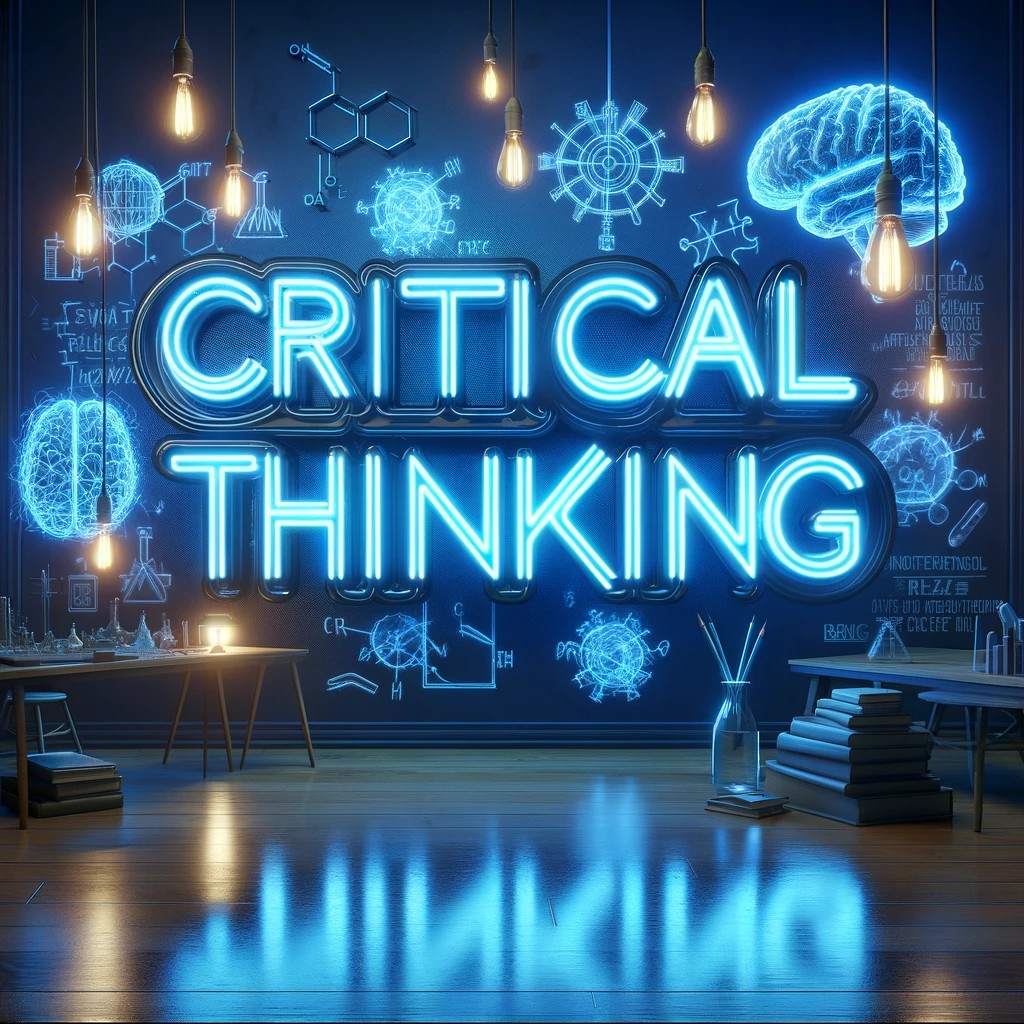
Critical thinking is a cognitive process that involves analyzing, evaluating, and synthesizing information and ideas to make informed decisions and solve problems effectively. It is a vital skill that empowers individuals to think rationally, assess evidence, and make well-informed judgments. Key aspects of critical thinking include:
- Analysis and Evaluation: Critical thinking entails a thorough examination of information, arguments, or situations. It involves breaking down complex ideas into component parts and assessing their quality and validity.
- Evidence-Based Reasoning: Critical thinkers prioritize evidence and data in their decision-making. They seek reliable information and evaluate its relevance, credibility, and reliability.
- Open-Mindedness: Critical thinkers maintain an open and unbiased perspective. They are willing to consider alternative viewpoints and adapt their thinking when presented with new information.
- Problem Solving: Critical thinking is central to effective problem-solving. It encourages the identification of issues, the development of solutions, and the evaluation of their feasibility and potential outcomes.
- Logical Reasoning: Logic is a cornerstone of critical thinking. It involves the use of sound reasoning, deductive and inductive reasoning, and avoiding fallacies in arguments.
- Decision-Making: Critical thinkers make decisions based on a rational assessment of available options. They weigh the pros and cons and consider long-term consequences.
- Creativity and Innovation: Critical thinking is not limited to analysis; it also fosters creative thinking. It encourages the generation of new ideas and solutions to complex problems.
- Communication: Effective communication is an integral part of critical thinking. It involves articulating ideas clearly, supporting arguments with evidence, and engaging in constructive dialogue.
- Self-Reflection: Critical thinkers engage in self-reflection to assess their own biases, assumptions, and thought processes. They strive for self-awareness and intellectual humility.
- Lifelong Learning: Critical thinking is a lifelong skill that encourages continuous learning and intellectual growth. It enables individuals to adapt to changing circumstances and acquire new knowledge.
- Education and Curriculum: Many educational institutions prioritize the development of critical thinking skills in their curricula, recognizing its importance in preparing students for the challenges of the modern world.
- Professional and Personal Life: Critical thinking is applicable in various aspects of life, including career advancement, decision-making in personal relationships, and civic engagement.
- Ethical Considerations: Ethical critical thinking involves ethical reasoning and moral decision-making. It encourages individuals to consider the ethical implications of their choices and actions.
- Problem Identification: Critical thinkers excel at identifying underlying problems or root causes in complex situations, allowing for more effective problem-solving.
- Global Perspective: Critical thinking extends beyond individual viewpoints. It encourages a global perspective, fostering a broader understanding of diverse cultures and perspectives.
In summary, critical thinking is a foundational skill that empowers individuals to navigate the complexities of the modern world. It involves rigorous analysis, logical reasoning, and open-mindedness. Cultivating critical thinking skills enhances decision-making, problem-solving, and communication, contributing to informed and responsible citizenship.